Farshid Gorbanpour, a literary journalist and manager of the online bookstore Soren, was violently arrested in a dawn raid on the family home on Sunday. His wife Somayeh Norouzi and their four-year-old son were woken at quarter past three in the morning by baton-wielding intelligence agents beating Farshid in the kitchen, by choking smoke bombs and pepper spray.
Norouzi has spent the past three days trying to find out where the armed officers took her husband, and to what purpose. To date, there has been no news. She has narrated the horrific details of that night to IranWire, and vowed: “Silence is not an option. I’ll keep telling everyone until Farshid is released."
***
Sunday, 3:15 am
All three in the house were asleep. The next day, Farhid Gorbanpour was due to update the literature section of Haft-e Sobh newspaper. Instead, he was disturbed in his slumber by an insistent ringing on the door. It took a few moments for Somayeh, also roused, to realize it was the doorbell; she put her hands over her sleeping son’s ears.
After a few moments of uninterrupted ringing, Farshid got up. The door was broken down and about ten agents poured into the hallway. They pushed Farshid into the kitchen, forced him to lie on the floor, and cuffed his hands behind his back. Pepper spray filled the whole house. Somayeh’s hands were no longer enough to keep Soren in ignorance.
Everyone in the house was coughing. Even the officers were looking for a window to let some air in. Soren began to scream. “Why are you beating him?” Somayeh cried as blows rained down on Farshid’s back in front of his four-year-old son.
In response, one officer of no more than 20 years old approached mother and child with a gun, firing a warning shot in their direction. "Why are you hitting him?" Somayeh demanded again. “It will be known to you later,” he replied.
The noise brought neighbors out of their houses. Officers pointed their guns at them instead, and threw mother and child out of the house. While not letting go of Soren's hands, Somayeh sat on the doorstep. Farshid shouted out from inside: "Somayeh, they are from the Ministry [of Intelligence]."
Somayeh didn’t believe it. She re-entered the house on the pretext of bringing out some clothes for her young son. The officers were searching the house. Their voices echoed down the stairs: "Where is your phone? Charge it."
Abruptly, Soren shouted at them: "Where are you taking my laptop?"
An agent replied: "Your laptop is broken, we're going to fix it."
"He’s lying,” Somayeh told her son in anguish. “They’re stealing our things."
"What do you mean, ma'am? Sign the list of what we’re taking."
Somayeh refused to sign the inventory, but Farshid agreed and they uncuffed him. After he did so, Farshid asked where they were taking him. An agent replied: "209.”
Ward 209 of Evin Prison is known as one of the most horrific places political detainees can be taken. Under the oversight of the Intelligence Ministry, its officers have a reputation for brutally torturing prisoners until they confess to fabricated crimes.
At 3:45am on Sunday, the agents took Farshid away.
A Drop in the Ocean
There has been no news of Farshid since his arrest. The judiciary has not released an official statement on the reason he was dragged from his house on Sunday, nor provided an update on the case to his own family.
After hours of stricken waiting, Somayeh Norouzi went to Evin Prison at 8am on Sunday. She was let into the building at 10am. It was teeming with the families of other detainees from across Tehran and beyond, waiting for an answer from the prison officials.
IranWire has since learned that an additional 3,000 people have been thrown into Evin Prison and Greater Tehran Peitentiary since protests began on September 16. Women are being housed in appalling conditions in Qarchak Prison outside of the city.
An hour and a half passed. Those present were told to wait for the prosecutor. The crowd of desperate people grew. The silence persisted for all of them.
Later that same Sunday, as IranWire reported after the incident took place, other families not let into the building waited outside in a 300-strong crowd. Eyewitnesses say that after a while, uniformed officers came out of the building and tear gassed them before forcing them to flee. None of them received any answers that day either.
Families Kept in Terror for Abducted Loved Ones
One of the other detainees’ family members, who requested that the identity of their child not be revealed for the time being, told IranWire they had been going to Evin Prison every day since the arrest. “Our child is a human being,” they said. “How can we calm down? You should have seen it. It’s hell. All the families have tears in one eye, blood in the other. No one answers. We don’t know where our children are.”
Last week the Iranian judiciary approved an illegal policy of “preventative detentions” that gave officers the green light to take people into custody without a warrant, and even if they had not taken part in any protests – which would also have been their right. Dozens of activists, particularly women, journalists and other public figures have been “disappeared” this way since September 16.
The Islamic Republic also appears to be targeting the families of people killed in previous periods of pro-democracy revolt. Mohammed Karim Beigi, whose 29-year-old son Mostafa was shot in the head during the 2009 Green Movement, announced on Monday that his daughter Maryam had been taken away to Qarchak Prison.
“Maryam said in a call on Tuesday afternoon that she was in Qarchak,” he wrote. “There are many detainees and no facilities. If anything happens to her, the leader and his appointees will be to blame."
The mother of Hossein Ronaghi, a newly-jailed civil rights activist, reported that her son's leg had been broken in custody due to beatings he received from officers. Ronaghi and his two lawyers had gone to Evin Prison Courthouse on Saturday in response to a summons, and all three were arrested on the spot. Jalilian was later able to place a call and confirm he had been transferred to Evin prison.
Political prisoners in Iran are incorrectly designated “security prisoners” by the regime regardless of the reason for their arrest, which is generally arbitrary. This means they can be denied the right to a lawyer until their first court appearance – and then, it will be a “tame” state-appointed lawyer that represents them, if one is present at all. They are often interrogated for unreasonably long periods, denied the right to contact their families, and held in solitary confinement, which is recognized as a form of torture.
This appears to be the case for Farshid Gorbanpour. Somayeh Norouzi told IranWire every lawyer she had tried to approach told her to “wait a while”.
“Silence is Not an Option”
It is near-impossible to quantify the total number of people taken into custody by the Iranian regime’s forces over the past week and a half – and harder still in remote locations, where there are fewer resources and less access to the internet, allowing for a greater degree of impunity.
The journalist Javad Heydarian reported on Monday that in the city of Yasij in Kohgiluyeh and Boyer-Ahmad Province, dozens of activists had been taken to prison without a warrant, as well as young people rounded up and placed in cells before they could join the protests. The authorities, he said, had issued “a temporary detention order of one month” covering all of these citizens.
Independent jurists have recently emphasized the importance of families’ reporting the arrest of their loved ones as soon as it happens, and raising their case in public as often as possible. This helps to keep up pressure on the authorities, who may think twice about ill-treating them if they know they are in the public eye.
"I will not be silent,” Norouzi told IranWire. “Whoever asks me, I’ll explain to. Farshid was taken away at quarter to four in the morning, and I posted a Telegram post at half past four. We haven’t done anything to keep quiet about. Silence is not an option. I’ll keep telling everyone until Farshid is released.”
Who is Farshid Ghorbanpour?
Farshid Ghorbanpour, together with Somayeh Norouzi, launched the online bookstore Soren – named after their son – last February. Somayeh is an editor, translator and content creator; Farshid a writer and technical administrator. Last year they also launched a video channel dedicated to Persian books.
Since the so-called reformist era in Iran from 1997 to 2005, Farshid has produced a literary supplement, Hayat No (New Life), in his home city of Astaneh Ashrafiyeh in Gilan province. He has been a member of the media since the age of 18 and is a published literary critic and theorist of many years, most recently producing content for the literary pages of Haft Sobh newspaper.
visit the accountability section
In this section of Iran Wire, you can contact the officials and launch your campaign for various problems




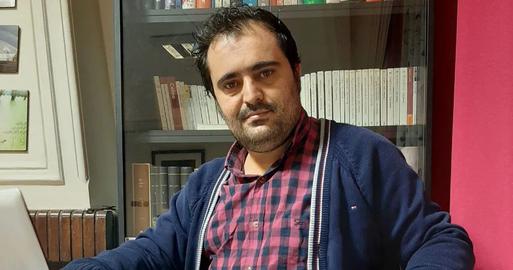



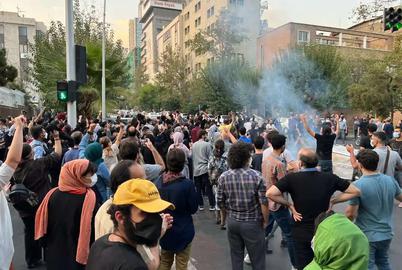
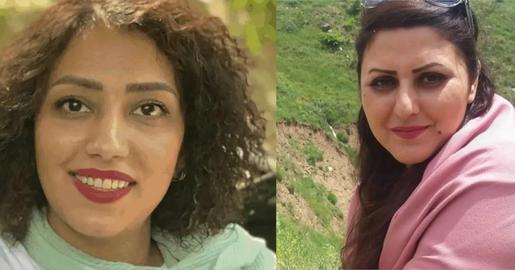
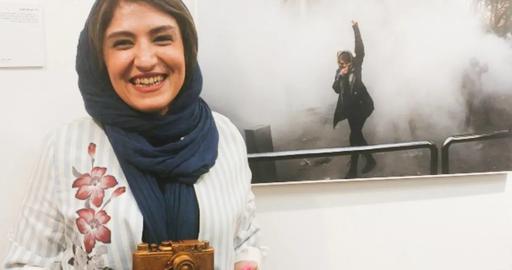
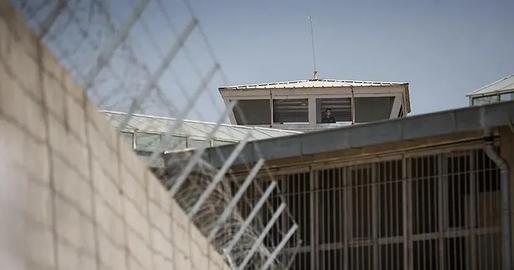

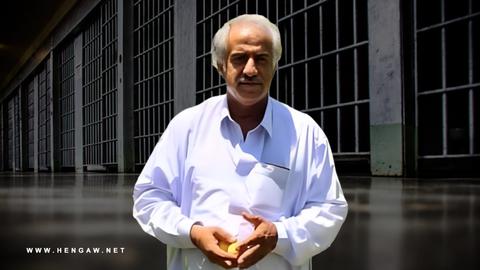

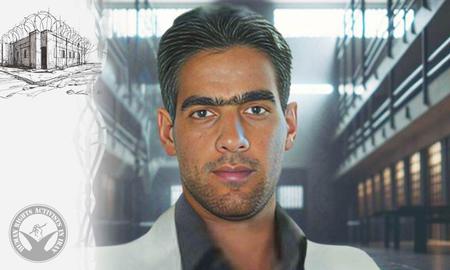




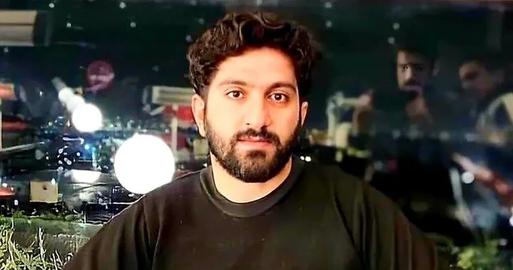




comments